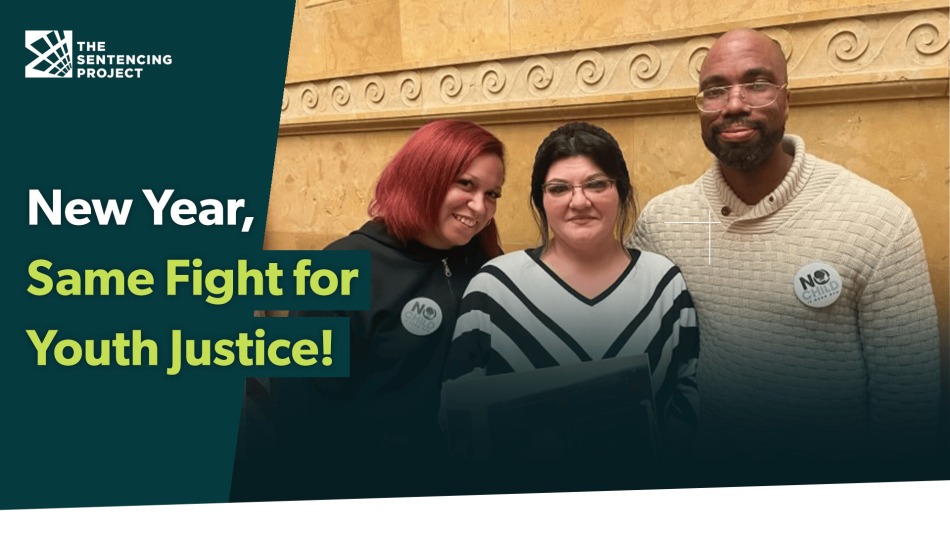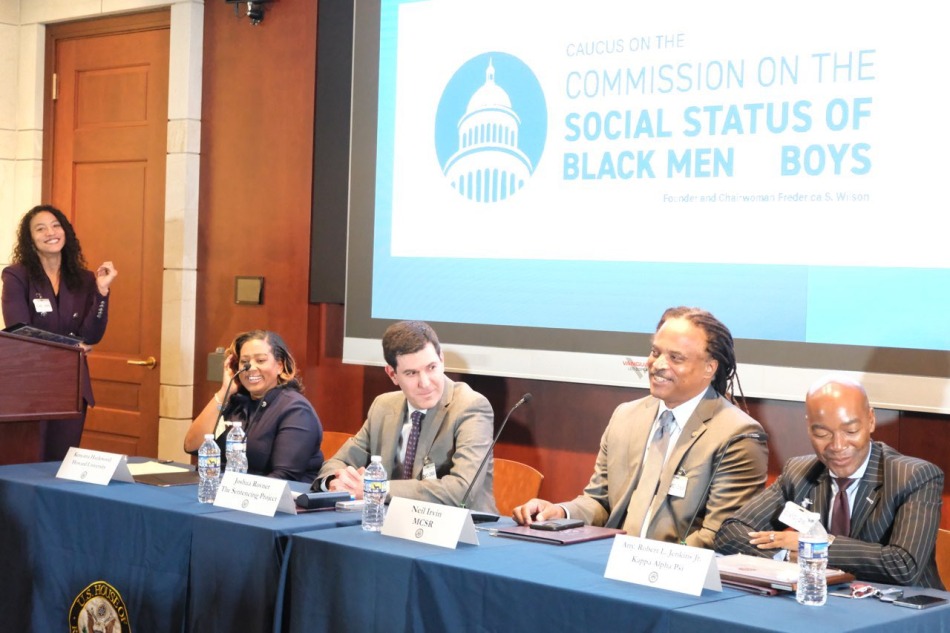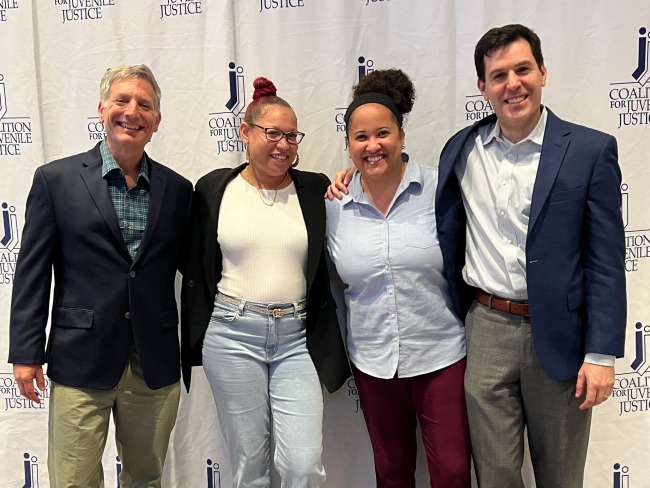New Year, Same Fight for Youth Justice!
In 2024, we are excited to continue working alongside our state partners to fight for what’s right for young people.
Related to: Youth Justice
 Advocates in states across the country worked hard to defend youth from harmful media rhetoric and “tough on crime” policies proposed against them. In 2024, we are excited to continue working alongside our state partners to fight for what’s right for young people.
Advocates in states across the country worked hard to defend youth from harmful media rhetoric and “tough on crime” policies proposed against them. In 2024, we are excited to continue working alongside our state partners to fight for what’s right for young people.
Thanks to the tireless efforts of advocates, local coalitions and organizations, we were able to support the defense of numerous reforms that would have severely harmed the youth legal system.
The Kentucky Center for Economic Policy (KyPolicy) built a coalition to gather allies against legislation that would have increased youth detention pre-adjudication, removed confidentiality provisions, and put more money into detention centers instead of restorative alternatives to incarceration. As part of this coalition, The Sentencing Project utilized research from ‘Why Youth Incarceration Fails’ to help construct an advocacy strategy and useful talking points. Unfortunately, the bill was signed by the Governor. This year, we will continue to offer advocacy support in Kentucky and monitor the impact of this new legislation.
We’ve also been able to witness the power of change that occurs when we come together.
In Tennessee, The Sentencing Project worked with numerous partner organizations, including the Youth Law Center and Disability Rights Tennessee, to keep young people out of adult court. During a special session, harmful legislation was proposed and defeated to automatically transfer youth into the adult system. At The Sentencing Project, we analyzed Tennessee’s arrest data to bring facts to the debate, and we are looking forward to supporting the continued efforts of our allies there.
In Connecticut, Governor Ned Lamont signed bills to end extreme sentences for people under 21 and to move the state closer to removing its youth from adult prisons. The Sentencing Project provided written testimony on both bills. In December, the state presented its plan to move some youth to the former Connecticut Juvenile Training School within the next ten years. We will continue working with the Connecticut Justice Alliance to push for the least restrictive placements possible for our young people and the investment in community-based alternatives to incarceration.
One of the many things we valued last year was our ability to connect with folks all across the country.
Our Youth Justice team participated in over 20 public speaking engagements, including the Congressional Caucus on the Commission on the Social Status of Black Men and Boys and joining State Senator Royce Duplessis and the Southern Poverty Law Center to speak to Louisiana’s many challenges.

We also met with over 15 directly impacted families, connecting them to advocacy resources in their states, uplifting their stories, and involving them in our state-based advocacy efforts. We cannot continue to do our advocacy work without those who are directly experiencing the issues we are fighting for. We look forward to continuing to connect with families and young people across the country.




